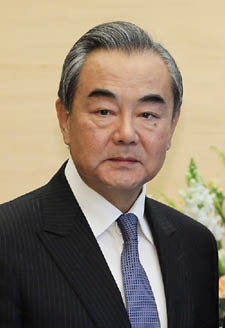Wang Yi’s recent visit’s primary focus was to bring Beijing’s proxies together to counter India’s growing influence.
As India’s relationship with Nepal is coming back on track, the Chinese attempts from the highest level to get the Himalayan Kingdom on its side had accelerated with the recent visit of Chinese Foreign Minister Wang Yi, who also happens to be the country’s state councillor. Sources within the external arm of the Indian security apparatus have confirmed to The Sunday Guardian that during his recent visit to Kathmandu, Wang Yi worked on his agenda against India and had tried hard to bring the Chinese friendly parties together in the run-up to the general elections in Nepal. One official who is privy to the developments said, “China tried hard to regain its lost ground in Nepal through the visit of its state councillor. The visit was the first high-level diplomatic contact between the two sides since Chinese President Xi Jinping’s visit in October 2019.”
Multiple sources have confirmed that the Chinese foreign minister held separate meetings with the rival factions of the Nepali Communist Party and had stressed on the need for them to work together for fulfilling common interests which effectively means serving Chinese interests. During his visit, Wang Yi didn’t meet many other important political parties of Nepal. Talking to The Sunday Guardian from Kathmandu, Nepal’s former deputy Prime Minister Rajendra Mahato said, “No, the Chinese foreign minister or the delegation which came to Nepal hadn’t meet anyone from our party.” Mahato’s Loktantrik Samajwadi Party, Nepal is the sixth largest political party in the country.
“What we have gathered as of now is that the message from the Chinese leadership is that the rival factions of Nepal Communist Party must get united, so that a China-friendly government can be formed in the upcoming polls. Even before the visit of President Xi Jinping roughly three years back, the Chinese had worked hard successfully at unifying the Nepal Communist Party and then we saw what was the approach of Prime Minister Oli and how he played into Chinese hands,” a official who is working with an Indian security agency and closely following the development
Many believe that there is a frustration in China with regard to Nepal due to two recent developments. Despite much strategic investment in the last decade, the Chinese have not been successful in stopping the passage of a $550 million grant from the Millennium Challenge Corporation (MCC), an independent US foreign aid agency by the Nepalese parliament. It had disturbed the Chinese. When the Oli government was around, Beijing was sure that it will not only corner India but also stop Nepal from getting any grant from the Western world, but as MCC has been passed, the Chinese are restrategising their moves in Nepal and Wang Yi visit was the starting of a renew attempt by Beijing to influence the domestic politics in Nepal.
“We have information that during the meetings with the Nepalese government, the Chinese delegation on multiple occasions highlighted its economic superiority and put pressure on Nepal to sign more agreements related to Belt and Road Initiative (BRI) but the Nepalese side declined it as they wanted projects under grant assistance, while BRI projects are loan based onces” the official added. The political parties which are supporting the government and public opinion in Nepal is also against any loan based projects.
“Nepal is a poor country. We want grant based assistance like what India has provided us since a long time or something like MCC, which is a grant based project,” added Mahato, the country’s former deputy Prime Minister.

